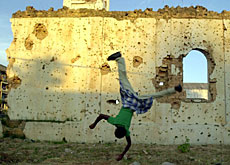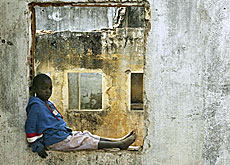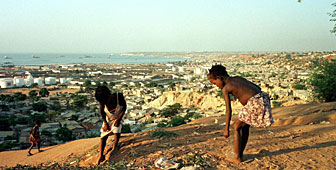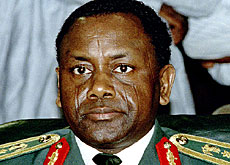Switzerland returns money to Angola

The Swiss authorities have signed an agreement that will lift blocking orders on four bank accounts and return $21 million (SFr27 million) to Angola.
The funds are to go directly towards humanitarian projects in Angola, in the first such agreement of its kind.
The agreement, which follows an investigation by a court in Geneva, was signed by Walter Fust, head of the Swiss Agency for Development and Cooperation, and Joaquim António Carlos dos Reis, the Secretary of the Angolan Ministers Council.
The money was originally frozen in connection with a Swiss investigation into French businessman Pierre Falcone, who was suspected of helping Angolan officials embezzle part of the African country’s debt repayment to Russia.
The case was closed in December 2004 after it was established that no irregularities occurred in the settlement of the debt.
Justice authorities cleared Falcone of all charges that he was part of a criminal organisation operating in Geneva, Moscow and the Angolan capital, Luanda.
Humanitarian projects
Switzerland has agreed with Angola that the money will be used for humanitarian projects to help the African nation’s people.
“The funds shall be used for projects that will benefit the most vulnerable sections of Angolan society,” the foreign ministry said on Tuesday.
“The projects selected will be in priority areas such as reconstruction, the establishment of hospital infrastructure, basic professional training, water supply and local capacity building, notably in the reintegration of displaced persons.”
The foreign ministry did not disclose to whom the bank accounts belonged.
Daniel Zappelli, the public prosecutor in Geneva, told swissinfo: “I am especially satisfied that this solution will benefit the money’s real owners: the people of Angola.”
The Swiss investigation concluded that the restructuring of Angola’s total $2.9 billion debt to Russia – in which Falcone played an active role through his company Abalone Investments Ltd. – was a legitimate transaction and that no criminal offence was committed.
The 82 per cent debt cut eased the burden for Angola, ravaged by almost three decades of civil war. Russia received repayments of money owed by the African nation since the days of the Soviet Union.
Angola’s civil war, which killed at least one million people, ended in 2002.
swissinfo with agencies
The money was linked to the restructuring of Angola’s $2.9 billion debt to Russia.
A Swiss investigation into suspected embezzlement of some of the funds was closed in December 2004 after it was established that no irregularities occurred.
The unblocked money is earmarked for the most disadvantaged people in Angola.
Angola, a former Portuguese colony, became independent in 1975 after a 14-year guerrilla war.
The Portuguese transferred power to the Marxist-inspired MPLA, which received support from the Soviet Union. Shortly afterwards a civil war broke out between the communists and separatist rebels.
A peace accord was signed in 1994 but a ceasefire wasn’t reached by the two factions until 2002.
Switzerland has been providing humanitarian aid to Angola since 1995 and in 2005, it amounted to SFr7 million.

In compliance with the JTI standards
More: SWI swissinfo.ch certified by the Journalism Trust Initiative



You can find an overview of ongoing debates with our journalists here. Please join us!
If you want to start a conversation about a topic raised in this article or want to report factual errors, email us at english@swissinfo.ch.